A young assistant director unassumingly filled in to play the titular face of a peppy party song. The film was Jaane Tu Ya Jaane Naa, and the iconic song, ‘Pappu Can’t Dance Saala’, in which Shakun Batra was none other than Pappu. The boy then went on to direct one of the most underrated Hindi-language romantic dramas of our generation, ‘Ekk Main Aur Ek Tu’, after which he took four long years to finally unleash his next onto audiences. It was well worth the wait.
The perceptive little family drama, Kapoor & Sons (Since 1921), is perhaps the most critically acclaimed film of 2016, and has also enjoyed success at the box-office — something that his first failed to do. Shakun is expectedly on a high, and not the kind Dadu (Rishi Kapoor) enjoyed in the film.
The ever-curious CHINTAN BHATT speaks to Batra about his journey, influences, that gestation period and both his films.
How did you get into assisting and filmmaking?
SB: I was born and grew up in Delhi. I went to St. Stephens College and Vancouver film school after that. After that, I came to Bombay in 2005 and have been here ever since. I was first DA (Director’s Assistant) to Farhan Akhtar in ‘Don’, after which I did ‘Jaane Tu Ya Jaane Na’ and ‘Rock On’. I did a whole bunch of ad films as an Assistant director, assisted Ram Madhvani (who directed ‘Neerja’), assisted Shujaat Saudagar who is directing ‘Rock On 2’ now. I thoroughly enjoyed this phase — doing AD work and observing so many different styles. You learn a lot while working with different filmmakers, you absorb how they function, how distinctly they think, you get to see how different things operate (or don’t operate), you learn how to handle pressure, how to handle and organise a set. All of that comes really really handy when you are making your own film.
How did the collaboration with Ayesha (Devitre Dhillon), your writing partner, happen?
It’s one of those funny stories. Ayesha is a hairstylist. She worked on ‘Jaane Tu Ya Jaane Na’ on which I was the second AD. I was already thinking about my own ideas by then. And I had been meeting some writers. I was not very happy with the stuff I was reading. Ayesha is somebody who is really funny and she has a lot of stories — so I just told her we should write together. We took a shot at it, and what started as a trial ended with us writing our first film (Ekk Main Aur Ek Tu). She is my closest friend, and we have been writing together since 2008.
The dramaturgy of Ekk Main Aur Ek Tu was very different from everything else in that genre. How did you go about finding that way of telling that story?
You can’t think of the tone and pitch of the film while you are making it. I discovered this while going about my first film. I was very aware and very interested in the American Independent scene. I was heavily into Wes Anderson and his kind of cinema and designs, and that’s where I was coming from. So I was very conscious of this particular kind of treatment even while I was writing it. It came from the word go and we tried to follow through with this vision loyally. Today I feel I could have done things a little differently. Maybe I could have pitched it slightly differently. But you know, these are things to learn and move on. 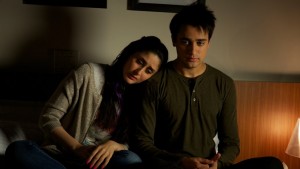
Was it a struggle to get the Ekk Main Aur Ek Tu script through Dharma Productions?
Funnily enough, not really. The thing is, I had written this, Imran and I had met on Jaane Tu and we became good friends. I had passed it on to Imran to read. He had really liked it and he said, “You know what? I am sitting with Karan (Johar) right now and is it okay if I pass on the script?” And I was like, sure, why would Karan Johar call me, you can give it to him. And within a week he called me, we had a meeting and things worked out. Frankly, it was one of those things where I got really lucky.
Those fighting/quarrelling sequences in ‘Kapoor & Sons’ and the power-play between the family members, can you talk a little about that writing process?
I guess everybody has their own way of writing. Ayesha and I would just sit and we would talk a lot, and then I would send her the scene in the night, she reads it by morning and tells me what works and what doesn’t work. It’s a lot of back and forth. I did want Kapoor & Sons to have scenes where multiple people were arguing and where people were overlapping each other’s dialogues. Because that’s what happens in real life — it’s not like somebody screams and the other waits for him/her to finish, it’s chaotic. You walk into a room, shout at somebody, walk out, somebody else meets you on the way, something else happens and I wanted to choreograph the chaos just as it happens in a natural family. So the writing came from the idea of knowing that this is exactly the kind of routine noise I wanted to put on screen.
The actors might not be used to that sort of style?
I think I was working with some very good actors. They were very open and from the very first meeting when I gave them the script, I told them how I am looking at it. The scene with the plumber was something we always spoke about and I told them I want it to be a cacophony by the end of it. Everyone is shouting Blah blah blah and then it explodes, and then the plumber comes out and says something stupid and it just goes back into that mode again. I think those were the scenes I was very sure of actually. I wasn’t sure how I was going to get to these scenes but I knew they were important. I knew that there had to be a fight at this point, there had to be a fight at the interval during the birthday celebrations, a climax which had to be a lot of argument and suppressed emotions.
That sense of almost cutting the melodrama — like that scene just before the interval where the wife just comes and dumps the cookies on her husband without saying much. A conscious choice to not overdo it?
Yes, that was a conscious choice of never going over the top, trying to keep it real. And that particular moment you talked about, there was a dialogue there; Ratna (Pathak Shah) was to say something, but that felt a little unrealistic so we cut it out.
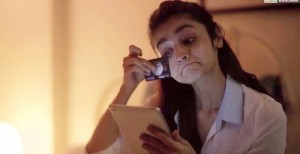
AIB: Genius Of The Year
Your style changed quite a bit from Ekk Main… to Kapoor & Sons. I saw a few ad films you did in the middle. Were you preparing for Kapoor & Sons through them?
Yes, you could say that. I did ‘Ekk Main Aur Ek Tu’ and that was a sincere effort, and at that time, that’s what excited me. I was trying to showcase my craft, I was trying to show that I can put a nice-looking composition, I can move the camera, I can do these things competently. And on this film I just wanted to concentrate on (more of a) story, on characters and situations. It needed to look more personal, intimate, more like you are in the room with these people instead of being a fly on their walls. It needed a different language, and I wanted to make you feel like you’re in the thick of action, and there is no escape. I then started to watch movies which are shot in a similar fashion. I was trying a few ads, the Alia Bhatt-AIB ‘Genius Of The Year’ viral video, couple of I-Ball spots which I did — all of where I just decided to shoot like that to get myself to try it out, and practice the style. That gave me some confidence of how to go about Kapoor & Sons.
Any specific film references for this one?
Yes, definitely. Mira Nair’s ‘Monsoon Wedding’ is definitely at the top of the list and it’s like a Bible for a film like this. I have seen it again and again — I don’t know how many times — how they choreograph a scene, how they block a scene, how the performances were, how they pitch it, how there’s sort of constant structured chaos — that was really important.
You had quite a few first timers in your crew. Jeffery Bierman, the cinematographer for this, he has never done a film before?
Jeff has hardly ever shot a film. He is 29 years old, just out of film school. Editor Shiv is a first-time editor too, he has done a lot of ads. Even Sameer Uddin, who is the background composer, has hardly ever done a film. My production designer Sarada Ramaseshan has never done a film. I think we were just excited to come together. I wanted to work with people who wanted to come and tell the story the way I wanted to tell the story, and I think I was very sure of that. I had met these people, I had spoken to them and some of them I had worked with before, and fortunately we spoke the same language. We were kind of trying to do the same thing. And when you meet people like that — that’s the best thing — when collaborators and you are on the same page.
The subplot of homosexuality, was that something incorporated from the beginning as part of the script or did it come later as a layer in the complex family?
Before the script of Kapoor & Sons, I was developing another script which was a coming-out-of-the-closet story, but it became very heavy as it only dealt with that. It only dealt with this one situation and that’s why I couldn’t finish it. So that’s why when I started writing Kapoor & Sons I was like, oh, why don’t I take a little bit of that story and put in this story? This changed things. I always wanted to treat it in a more sensitive way and as a layer, and not as an entire film.
What is the starting point for a story? Is it a genre or a theme or just an idea?
I think ‘genre’ is the worst thing. Even while you are making it, you are not thinking of genre. Genres are mere labels for DVDs and IMDB so people can find them easily. But you cannot make a film based on that. Sometimes it’s good to study a genre convention — like a Western, that has a genre convention. But something like a drama and a comedy, you say comedy is a genre but there are conventions of comedy and not rules; you can do whatever you want in a comedy, right? So I cant think in terms of genres.
Also because Kapoor & Sons particularly jumps a lot of these conventions, like in the second half it becomes a bit of a thriller, a bit of a tragedy and so on…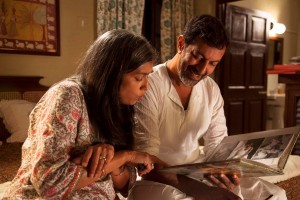
Yes, thriller, tragedy and it becomes way more darker at some level. That’s why I can’t think genre. A lot of people have had problems with this. Some have told me that, “Yaar, this picture started like this and ended like that, why?” And I am trying to tell them I don’t think that way. I am trying to tell you a story which I believe is a good story. So if it goes from this to that, from one mood to another, from one theme to another, it’s fine for me. Isn’t life like that? I have always liked movies where stories work, characters work, emotions work, and everything else is secondary.
How was it working with actors on this film? Were the rehearsals extensive?
Not a lot of rehearsals. We did couple of reading sessions where the entire cast got together, and we read all important scenes. We read the plumber scene, the interval scene, and some others. The Sidharth-Alia, Fawad-Alia, Sidharth-Fawad scenes were read. Generally, on the day before the shoot, if it’s a complicated shoot scene, and I know the blocking, and I kind of know how to move roughly, I get the actors in and I tell them what I am thinking. Then I let them do what they want to do and then I see if I like what they are trying to do. If I like it, we just go ahead with it. And then Jeff and I sit and break down the shots, and see how we want to cover it. It is very organic, I don’t have a set trend and definite plan. There are days where I have no rehearsals; we come on set and people are like, let’s just try and go for a take. You go for a take, and sometimes it’s good, but sometimes it’s clear you need rehearsals. There is no one way. You go according to the scene, the need of the scene, how the actors are feeling and you try and find a way for that particular scene on that particular day — and things work out eventually.
Coming back to the homosexuality angle, it was never spoken about, it was just referred to. Was that for dramatic reasons or there were other reasons?
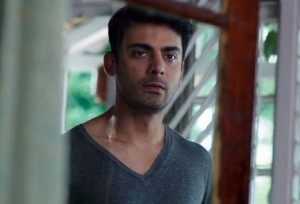 Two things. One, I wanted to treat it in the most dignified way, in the most non-sensationalised way. I was very aware that a major part of the audience might get repulsed by the idea of homosexuality, they might even get offended. So the idea was to make sure not to turn people off or run away. I wanted people to get more engaged, get more involved. I didn’t want to make them feel uncomfortable and squirm in their seats or force them to take a loo break. That’s exactly the reason why I didn’t want to explicitly mention any of those things. I think it’s nicer to not say it when you can see it, you can feel it. In fact I think it’s more impactful — when you don’t hear it, because that’s when it gets you a little more.
Two things. One, I wanted to treat it in the most dignified way, in the most non-sensationalised way. I was very aware that a major part of the audience might get repulsed by the idea of homosexuality, they might even get offended. So the idea was to make sure not to turn people off or run away. I wanted people to get more engaged, get more involved. I didn’t want to make them feel uncomfortable and squirm in their seats or force them to take a loo break. That’s exactly the reason why I didn’t want to explicitly mention any of those things. I think it’s nicer to not say it when you can see it, you can feel it. In fact I think it’s more impactful — when you don’t hear it, because that’s when it gets you a little more.
I have read pieces about that scene between the two brothers at the end on the dining table and that one single tear. Silence has affected people much more in this film.
A moment like that, specifically the moment you are talking about, if it happened to me, if my brother — I don’t have a brother — but if my brother or sister were to come to me and tell me that, I don’t think I will be able to react right away. And I am not really trying to do something there, I am just trying to play it real. I felt if that if it were to happen in real life, that’s how you’d feel. And I have always enjoyed such scenes. Sometimes, for an important scene you don’t have to do too much. There can be just two people sitting on a dining table, that’s all you need. And what really works is the emotion of the scene, what you are saying in the scene. So much had happened prior to it that I felt like this scene just needed to be about two brothers, just sitting down, looking each other in the eye and talking to each other. I am really glad it was so simple and straightforward, and such little things have been said yet so much has been understood. Also by now we know he is gay, by now we know his story, so to repeat it again will be boring. So, yes, just two people sitting on the dining table and talking.
Did the character of Dadu (Rishi Kapoor) and its humour come across as you intended given the otherwise dark material?
His character was always intended to lighten things, he was the comic relief, the humour part of the film. Because I hate when things get too dark or heavy. I like to break it every now and then. Those are also my favourite films, where, when things get too dramatic they make it lighter, and when things get too light they make it dramatic. I think Chaplin worked like that. He was always there to lighten the feel.
What do you think of film criticism today? Constructive?
I think some of it is. Just like anything in this world, a lot of it is bullshit and some of it is really valuable. There are some people that I respect who help me gain an insight and perspective into my own work. But when criticism gets beyond talking about their understanding of the film and becomes about beyond work, I don’t enjoy all that — although in our case, maybe that didn’t happen. However, there a lot of interesting voices and minds who give constructive feedback. When you get that, it’s very important to take it because that’s the only way to understand what you have done and how you’ve grown.



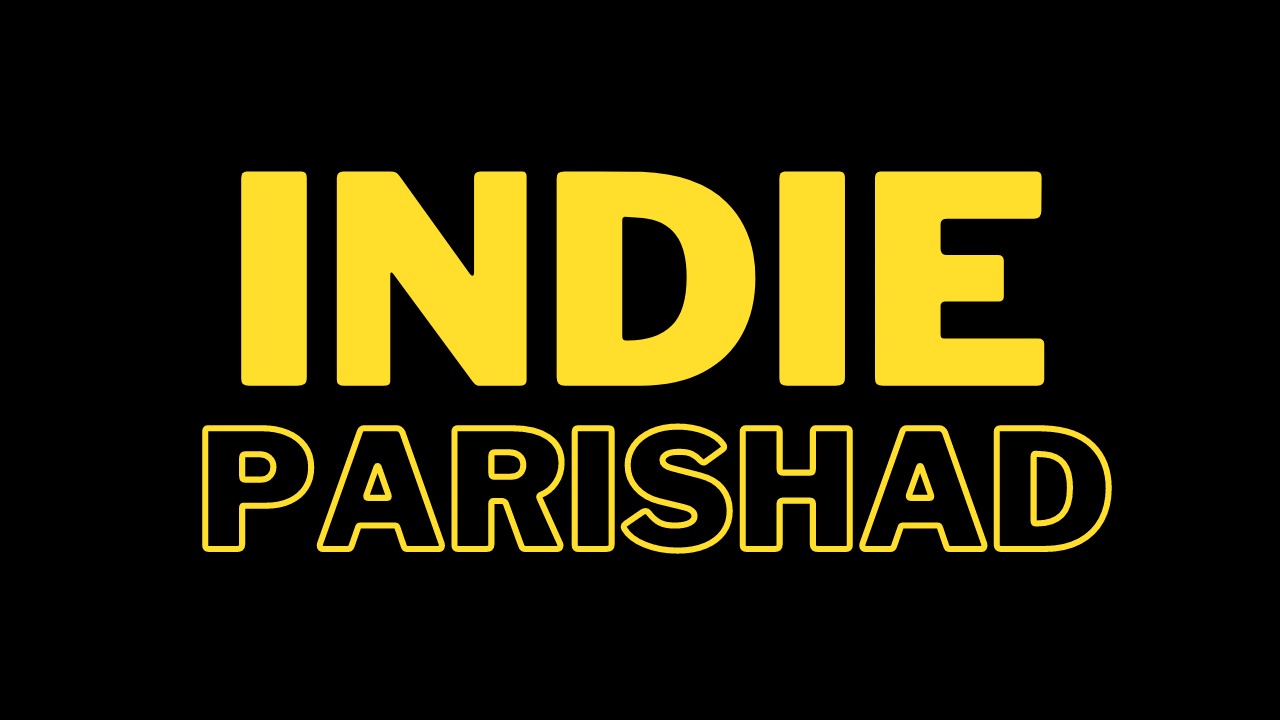
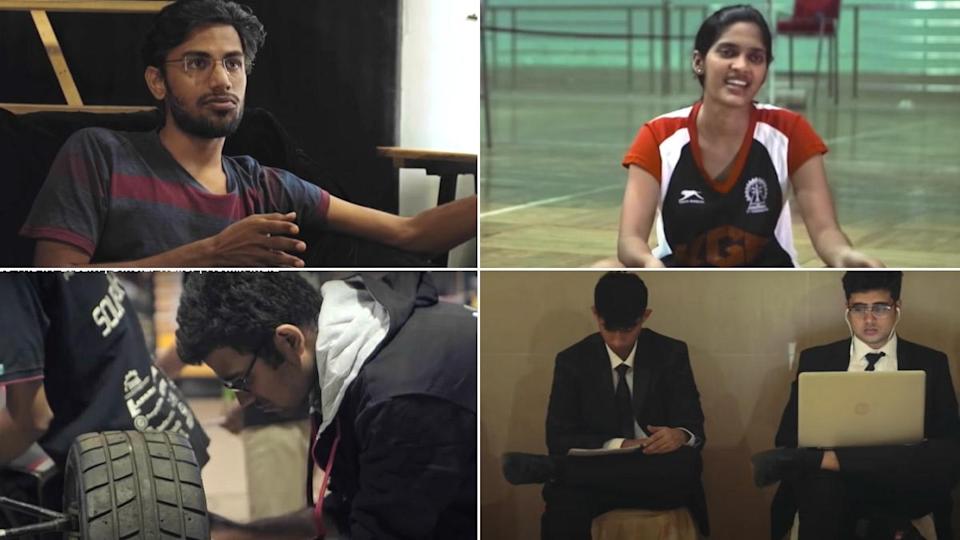
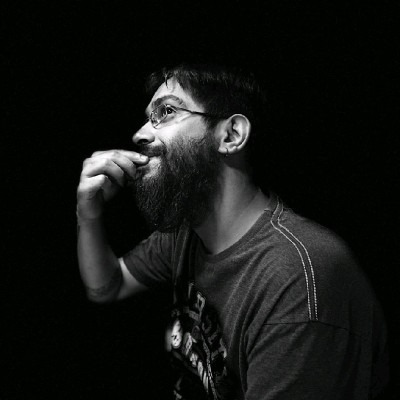



Leave A Comment
You must be logged in to post a comment.